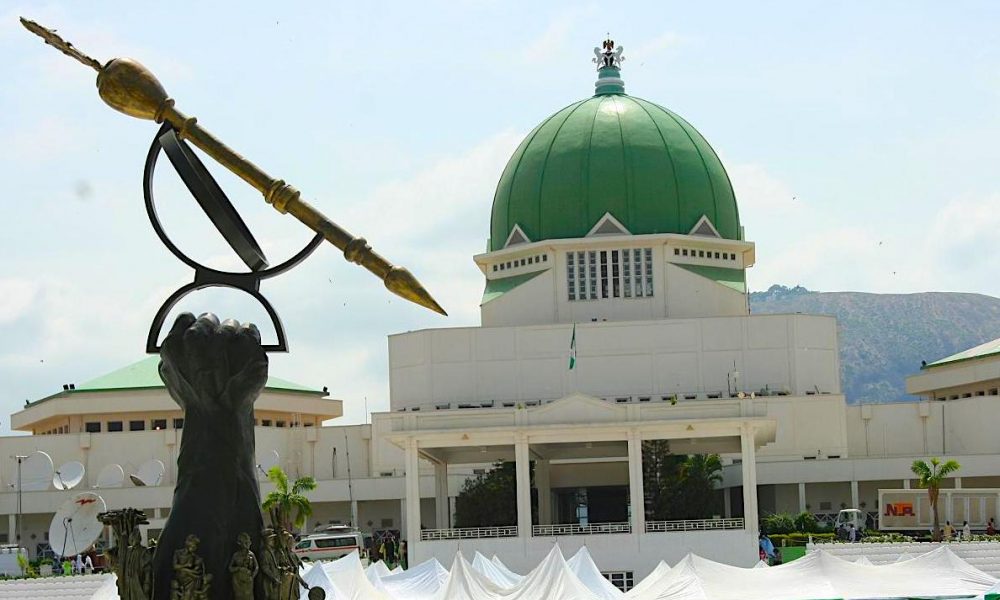Politics
Electoral Bill: Lawmakers Too Lame To Override Veto
By Fred Itua and Ndubuisi Orji, Abuja

Plans by senators and the House of Representatives to override President Muhammadu Buhari’s veto on the Electoral Amendment Bill may have hit a dead end.
The development, Daily Sun gathered, is the seeming inability of lawmakers from the two chambers to reach a compromise on how to mobilise members should the president decides to withhold assent the Bill.
However, Daily Sun gathered that some lawmakers across party divide would not let the rejection go without a fight. Consequently, they are said to be frantically mobilising and restrategising in spite of the difficulties.
The time line for president to give assent to the Electoral Amendment Bill elapsed on Sunday having clocked the mandatory 30 days, within which the president must communicate to the National Assembly on his decision regarding any Bill passed by the parliament.
That time lapse meant that the president had put his veto power to use on the Electoral Bill.
Section 58 (4) of 1999 (as amended) stipulates that “Where a bill is presented to the President for assent, he shall within thirty days thereof signify that he assents or that he withholds assent.”
Similarly, section 58 (5) provides thus “Where the President withholds his assent and the bill is again passed by each House by a two-thirds majority, the bill shall become law and the assent of the President shall not be required.”
The bone of contention in the proposed amendment is the expulsion of indirect primaries from the existing Act by members of the two chambers of the National Assembly.
Its removal was spearheaded by the Speaker of the House of Representatives, Femi Gbajabiamila. The Senate, had in its earlier amendment retained indirect primaries.
Observers believe that lawmakers made the sudden U-turn after they lost out in the recently-conducted primaries of the ruling All Progressives Congress (APC) across the 36 states of the Federation and the FCT.
With the purported rejection of the Bill, members elected on the platform of APC and the Peoples Democratic Party (PDP), are strategising ahead of an unveiling of a letter of rejection sent to the two chambers by President Buhari.
Former chairman, House Committee on FCT, Sergius Ogun, who represents Esan North East/Esan South East federal constituency of Edo State, told Daily Sun, in a telephone interview, that lawmakers would wait for an official communication from President Buhari before deciding on the next course of action.
“We will wait until we get a communication from him. The other thing would have been to override his veto but I don’t think the National Assembly as it is constituted has the courage to do that. The leadership of the National Assembly as it is constituted might not have courage to veto the president,” he said in confession of the lawmaker’s inability to override the veto on the Electoral Bill.
Meanwhile, a top government source has told Daily Sun that a notice of rejection of the Bill was sent to the Senate President, Ahmad Lawan and Speaker Gbajabiamila in early December. He said the National Assembly, which is expected to embark on its annual Christmas break this week, may be unable to take any action until mid January, 2022 when it would reconvene. He further revealed that the National Assembly is already divided along regional lines on the issue of direct primaries and electronic transmission of results from polling units.
The source said many northern leaders were opposed to electronic transmission of results but indifferent to direct or indirect primaries.
The top government official said many northern lawmakers would side with Buhari if the National Assembly makes any move to override him.
The process of overriding the president is tedious. Since the beginning of the fourth republic in 1999, the National Assembly has only overruled the president’s veto once, when it passed the Niger Delta Development Commission (NDDC), following President Olusegun Obasanjo veto.
For each chamber to override the president, it needs two-third of members. For the Senate, it needs 74, out of 109 members seated and voting. For the House of Representatives, a similar requirement is needed. It needs at least 240 members present, out of 360 constitutionally recognised by law.
However, despite the growing pressure from the public and the political class, it is unclear if Lawan and Gbajabiamila would muscle the courage to call the bluff of the president and override him.
Send Us A Press Statement Advertise With Us Contact Us
And For More Nigerian News Visit GWG.NG